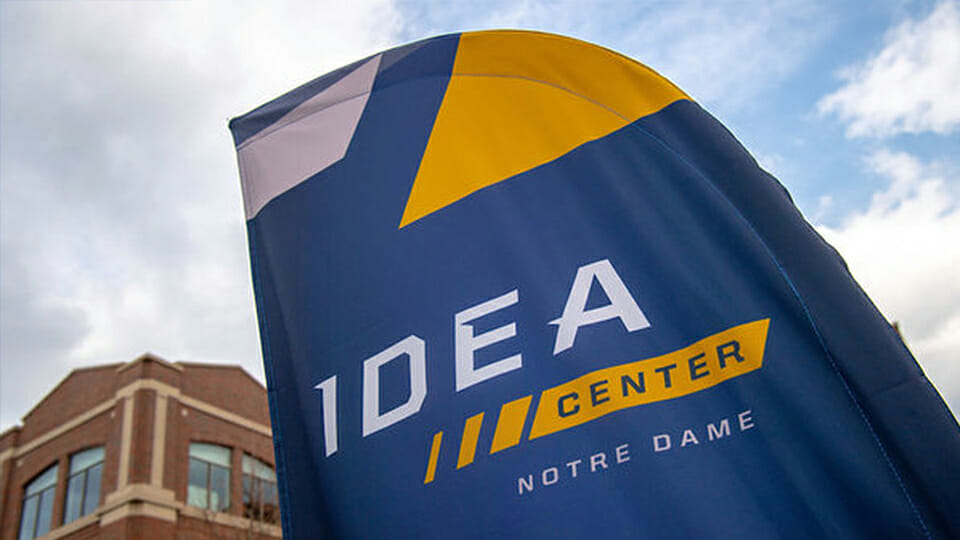Notre Dame’s Race to Revenue accelerator sees growth spurt
Subscriber Benefit
As a subscriber you can listen to articles at work, in the car, or while you work out. Subscribe Now
This year’s Race to Revenue, a University of Notre Dame startup accelerator, broke records on several grounds from participation to fundraising, the university announced Thursday.
Born out of the IDEA Center, the program saw 30 student founders and interns participate over the summer, the highest number since the program launched in 2019 with eight students.
The cohort collectively made over $1.7 million from sales and fundraising efforts—the highest amount in the program’s history—with more founders than usual earning or raising over $100,000 individually.
Designed to connect current student founders with resources they may be lacking on their own and encourage students who are interested in someday starting a business, participants learn sales, finance, marketing and coding skills, which they can immediately apply to their businesses. The model prompts former interns to apply again next year, but this time as business owners.
“Earning or raising over $100,000 used to be concentrated to just one or two founders. Not anymore,” IDEA Center Director of Student Startups John Henry said in a news release. “We are getting better at ensuring that the student entrepreneurs are working with the right interns with the skillsets their businesses need at the right time to maximize impact.”
Dev Alimchandani, an intern in last year’s program and founder this year, is the co-founder of Finly Club, a service that allows customers get the best benefits each time they make a purchase with their credit card.
“You really do see how the intern-to-founder strategy helps,” Alimchandani said. “Last year I was able to learn from the financials and business philosophies of other startups further ahead in their journey than mine, and that gave me a whole new level of insight to apply to my own company this year.”
Launched in October 2023, Finly Club has raised $220,000 from venture capital firms like the Sequoia Scout Fund and Plug and Play as part of its $1 million pre-seed investment round. At the McCloskey New Venture Competition in April, the team won the Wray O’Brien Award for the best minority-led venture.
Three pitch sessions across Indianapolis, South Bend, and Chicago, Illinois, helps the students showcase what they’ve learned over the course of the program and also introduces them to possible mentors and investors.
Matthew Giordano, owner of Doylestown, Pennsylvania-based Varsity Mulching, said he has been able to increase both his revenue and vision through interacting with Jackson Jhin, CEO of Chicago-based tech company Protégé and a former Race to Revenue participant, during the course of the program.
“Jackson really helped build my confidence that I’m on the right path,” Giordano said. “Through him, I have learned that there really isn’t any reason for me not to scale up.”
Varsity Mulching has earned $180,000 in revenue this year and Giordano has set a revenue goal of $500,000 for 2025.
“The program allows you to get deeper into figuring out what your business is really all about,” Giordano said. “I figured out that I don’t really have a mulching company; I have a service company. I’m now thinking about adding new services to expand our reach.”
The entrepreneurs also had the opportunity to pitch to investors in the South Bend-Elkhart area, toured the Studebaker Building and networked with investors and mentors.
“The skill we really focus on at Race to Revenue is getting the students’ pitches compelling enough so that it leads to a 30-minute meeting with a potential investor or mentor, which, in turn, leads to two or three hours of ongoing engagement with that individual,” Henry said. “Entrepreneurship is a muscle memory game, not a mathematical proof. The valuable feedback the students get from having audiences with key investors and mentors is like a master class unto itself.”
